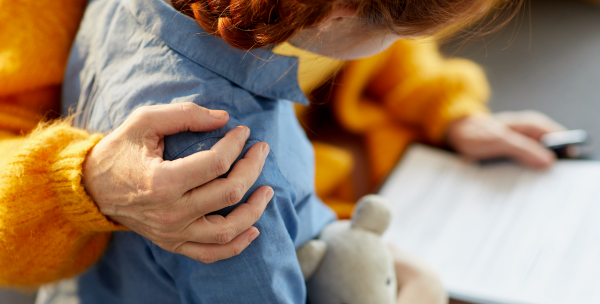The CEO of Medibank Health Services, Dr Andrew Wilson, says COVID-19 lockdowns are lifting but the mental health impacts of the pandemic will remain an issue for some time.
"Unfortunately, the pandemic has exacerbated poor mental health for many people, and created new mental health issues for many who may not have experienced this before," said Dr Wilson.
He said the demand for mental health services is growing but that the health system was not meeting that demand even before the pandemic.
"One of my biggest concerns is the impact that the relentless anxiety-provoking coverage of the COVID-19 pandemic, together with lockdowns and associated isolation, has had on children and teenagers.
"Our young people have critical socialisation and personal development milestones in childhood and adolescence and many of these have been missed, particularly in Melbourne and Sydney, where extended lockdowns kept young people home from school and tertiary studies.
"Even the most resilient child or teenager, with a stable home life and economic security, may struggle with the fallout from the extended lockdowns.
"But my chief concern is for children and teenagers who were already at risk; those who may be living in a family violence situation, or without economic security, or dealing with additional stressors like chronic disease or isolation."
Dr Wilson said data from NSW Health shows the number of 12-17-year-olds presenting to hospital emergency departments with self-harm or suicidal ideation has increased 47 per cent in the year to July 2021, compared to 2019. This is compared to an increase of 17 per cent across all age groups.
"In protecting ourselves from a physical virus, we have created a ‘virus’ that has and will continue to impact our community’s mental health. We need to acknowledge and understand this, and work together as a community to support each other and to ensure no one is left behind."
He said all areas in the health sector need support to develop and implement interventions to promote recovery and treat mental ill-health.
He added, "We need to involve the community directly - those who interact with our young people and see the real-time impacts of the last 18 months.
"Parents, extended family, teachers, childcare educators, social workers, and community organisations and sporting teams will all be vital in recognising where the challenges might be and what we can do in each unique community to help improve mental health and wellbeing. We must not assume that because the lockdowns are over, the impacts of them are too.
"Some of us will do better than our friends and neighbours in recovering from the psychological and social impacts of the pandemic. We cannot forget the complicating factors at play for those who are vulnerable in the community, and we need to watch out for them in the years to come."
